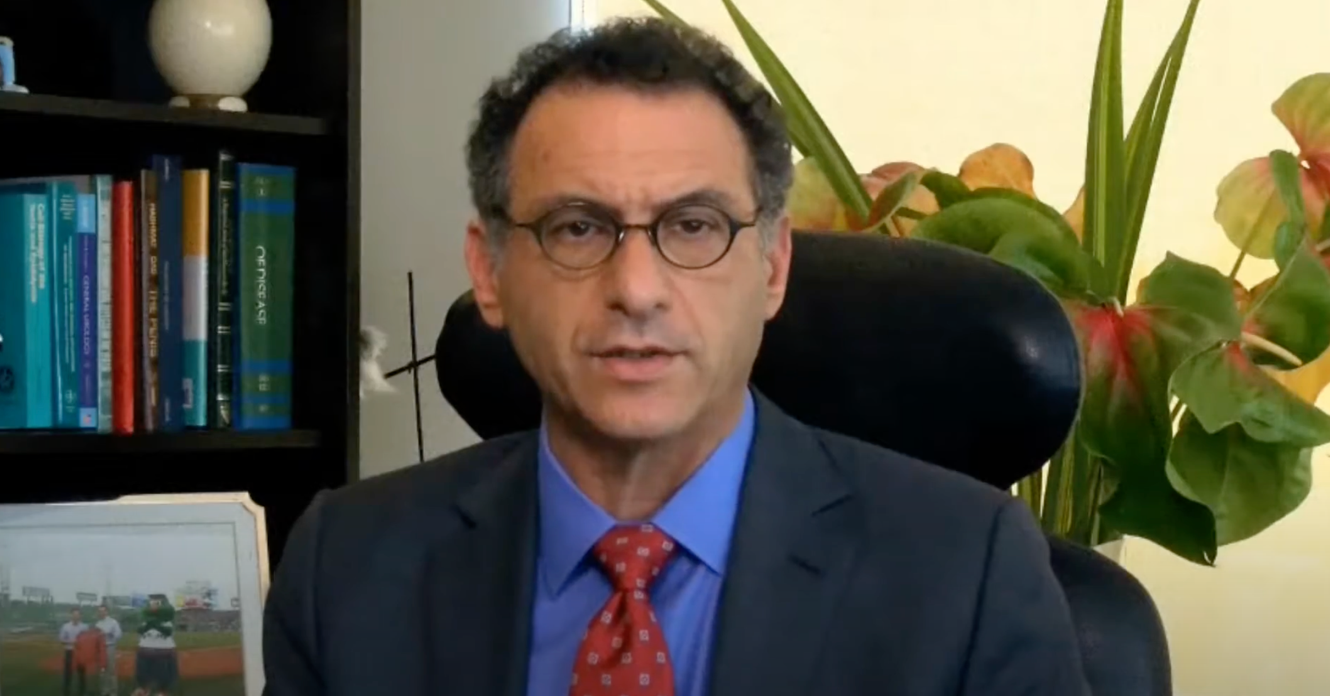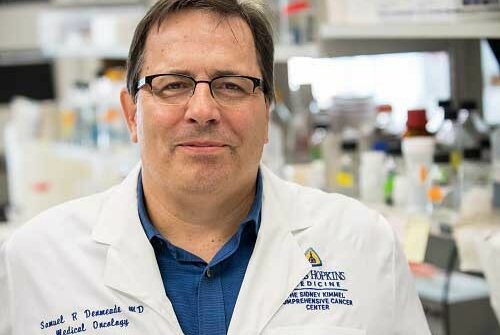Testosterone. And Prostate Health
The prostate is normally about the size of a walnut. Once men hit their 50s and beyond it’s very common for their prostate to grow. The prostate gland is located between the bladder and the penis. The prostate is just in front of the rectum. The urethra runs through the center of the prostate, from the bladder to the penis, letting urine flow out of the body. The prostate secretes fluid that nourishes and protects sperm.
“The value of testosterone replacement therapy (TRT) for older men is currently a topic of intense debate. While US testosterone prescriptions have tripled in the past decade (9), debate continues over the risks and benefits of TRT.
TRT is currently prescribed for older men with either low serum testosterone (T) or low T plus accompanying symptoms of hypogonadism. The normal range for serum testosterone is 300 to 1,000 ng/dl. Serum (less than) 300 ng/dl is considered to be low, and T (less than) 250 is considered to be… hypogonadism. Most experts support TRT for older men with… hypogonadism and symptoms.
Treatment for men who simply have low T remains somewhat controversial. TRT is most frequently administered by intramuscular (im) injection of long-acting T esters or transdermally via patch or gel preparations and infrequently via oral administration. TRT produces a number of established benefits in hypogonadal men, including increased muscle mass and strength, decreased fat mass, increased bone mineral density, and improved sexual function, and in some cases those benefits are dose dependent. For example, doses of TRT administered by im injection are typically higher than those administered transdermally, which results in greater musculoskeletal benefits. TRT also produces known risks including development of polycythemia (Hct > 50) in 6% of those treated, decrease in HDL, breast tenderness and enlargement, prostate enlargement, increases in serum PSA, and prostate-related events and may cause suppression of the hypothalamic-pituitary-gonadal axis.
“I thought this is just a part of aging. I asked my friends it they felt the same way and some of them said that they had experienced the same issues around the age of 50. One of my friends suggested it might be low testosterone.”
-Boston Medical Group Telemedicine Patient
Importantly, TRT does not increase the risk of prostate cancer. Putative risks include edema and worsening of sleep apnea. Several recent reports have also indicated that TRT may produce cardiovascular (CV) risks, while others report no risk or even benefit…”
* https://pubmed.ncbi.nlm.nih.gov/25898953/
Hormone Therapy and Prostate Cancer
It was in the early 1940s when it was discovered the male hormone testosterone can feed the growth of prostate cancer. This can also be further proved by the fact that hormone therapy for prostate cancer is a treatment that stops the male hormone testosterone from being produced or reaching prostate cancer cells. Androgens stimulate prostate cancer cells to grow, and testosterone is one of the two main androgens in the body. And if you’re receiving or thinking of getting hormone replacement therapy, it can be spooky to learn while testosterone is vital to the development of generally masculine characteristics in males, it also stokes the growth of prostate cancer cells. It can even make you worried if might increase your risk of developing prostate cancer.
Research has challenged the link between testosterone and prostate cancer in recent years. While there is still a lot that needs to be studied on whether testosterone therapy is safe for men with a history of prostate cancer, there have been studies that found testosterone treatment does not increase a man’s risk of developing prostate cancer. For example, if a person is diagnosed with prostate cancer while taking testosterone, it’s not a cause-and-effect relationship. In fact, a new study published in European Urology found that men with the lowest levels of testosterone had a 23% reduced risk of developing prostate cancer. While, again, further studies are needed regarding the link between hormone therapy and prostate cancer, existing evidence suggests that testosterone therapy can be safe in some men who not only have low testosterone but have completed prostate cancer treatment and are therefore at lower risk for recurrence.

A Preeminent Medical Expert on TRT & Cancer Risks
“Abraham Morgentaler, MD, explains new concepts that could subvert the long-held belief that high levels of testosterone exacerbate prostate cancer growth. He discusses the androgen saturation model, as well as the benefits of testosterone therapy for patients’ quality of life.
General attitudes in the urologic community have long maintained that high testosterone exacerbates prostate cancer (PCa), low testosterone is protective, and raising testosterone levels in men with PCa will enable tumor growth. However, these assumptions may be flawed.
In the 1940s, Huggins and Hodges found that giving men with bony metastases testosterone caused acid phosphatase levels to rise. They concluded that high testosterone was dangerous for PCa patients. However, this study only reported results for 2 men, one of whom was castrated. This means that the prohibition against T therapy in men with prostate cancer originated from observations in one non-castrated patient. Later, many researchers looked for a link between high testosterone and PCa, but found no conclusive results. However, data does show that low testosterone does not protect men from developing PCa.
One concept subverting this long-standing assumption is a saturation model. This concept dictates that PCa growth is sensitive to variations in testosterone levels at the low levels, but this sensitivity lessens at higher testosterone levels. According to this model, depriving PCa of testosterone can cause tumor death. However, testosterone only exerts a prostatic effect by binding to the androgen receptor (AR). Once serum testosterone concentrations reach maximal androgen-AR binding, or a saturation point, increasing testosterone will not cause tumors to grow.”
** https://grandroundsinurology.com/testosterone-therapy-in-men-with-advanced-prostate-cancer
https://player.vimeo.com/video/340896194

An Oncologist on TRT & Cancer Treatments
“Testosterone is usually viewed as a fuel for prostate cancer. Consequently, most researchers are reluctant to explore it as potential therapy. However, Johns Hopkins cancer researcher, Dr. Samuel Denmeade, took a page right out of cancer’s playbook, and figured out what prostate cancer cells were doing to survive hormonal therapy and then beat them their own game. After prolonged treatment with testosterone-blocking drugs, prostate cancer cells adapted to living with low levels of the hormone by ramping up the activity along with the amount of receptors within the cell surface to suck up every bit of testosterone available.
With prostate cancer cells in this state, adapted to an environment with low levels of testosterone, Denmeade wondered what would happen if he flooded the cancer cells with a short burst of high-dose testosterone, using the hormone like a drug. “If we give testosterone acutely through injection to cause a sharp rise in the hormone, prostate cancer cells won’t like that, and some will die,” says Denmeade. “Prostate cancer cells might be killed by the hormone shock, and the cells that survived would make fewer receptors, making prostate cancer cells vulnerable once again to hormone-lowering therapies.” At first glance, it seems paradoxical to give testosterone to a prostate cancer patient, but Denmeade and Isaacs say this approach is very different from the chronic, ongoing supply of testosterone that naturally occurs in men or testosterone replacement therapy. “It’s pharmacologic testosterone, not physiological testosterone,” says Isaacs.
Prostate cancer cells are not expecting an intense dose of testosterone, and they don’t know that it’s a short burst. Cancer cells that survive will adapt again, this time turning down the activity of those cell surface testosterone receptors. “They will downregulate their receptors at a time when the drug is wearing off, so we will see a period of low testosterone, low receptor, and that’s not good for cancer cells,” says Denmeade. As the cells are continually challenged with these short bursts of testosterone, they are constantly adapting levels of cell surface receptors up and down. “We are taking the cancer cells’ options out of play by making the testosterone levels rise and fall rapidly,” says Denmeade. Denmeade turned the idea in a clinical trial of testosterone as a prostate cancer drug therapy.”
*** https://www.hopkinsmedicine.org/news/articles/testosterone-as-a-drug

Boston Medical Group Telemedicine has TRT Programs
“At first I was skeptical about this whole testosterone idea. I was not prepared for what was in store for me…It has taken some time to get the levels adjusted but there is no denying the effects of testosterone has had a huge positive effect on my life.”
-Boston Medical Group Telemedicine Patient
Testosterone is the key hormone produced by the Leydig cells of the testicles and is responsible for the normal growth and development of male organs and for maintenance of other sexual characteristics. Aside from sexuality, it also contributes to some essential body functions such as embryological development, facial hair development, brain function, body muscle mass, bone strength, red blood cells function and even mood and energy levels.
The range for normal testosterone level is 300-1100 ng/dL. It is optimal for a man to get around 800- 1100 ng/dL. When a man reaches his mid 30’s, production of testosterone declines an estimate of 1% each year – 10% in 10 years or even more. Greater decline in testosterone level can happen due to obesity, infectious diseases, excess of blood iron and inflammatory diseases.
Low testosterone level can post significant health risks and physical limitations such as decreased energy, low libido, decreased mental quickness and depression. If left untreated, it may lead to more serious health problems such as osteoporosis, muscle atrophy, alopecia and erectile dysfunction.
*** https://www.bostonmedicalgroup.com/low-testosterone
Click here to read Part I: It’s Not Just About Muscles
Click here to read Part II: A Man’s “Time of the Month?”

